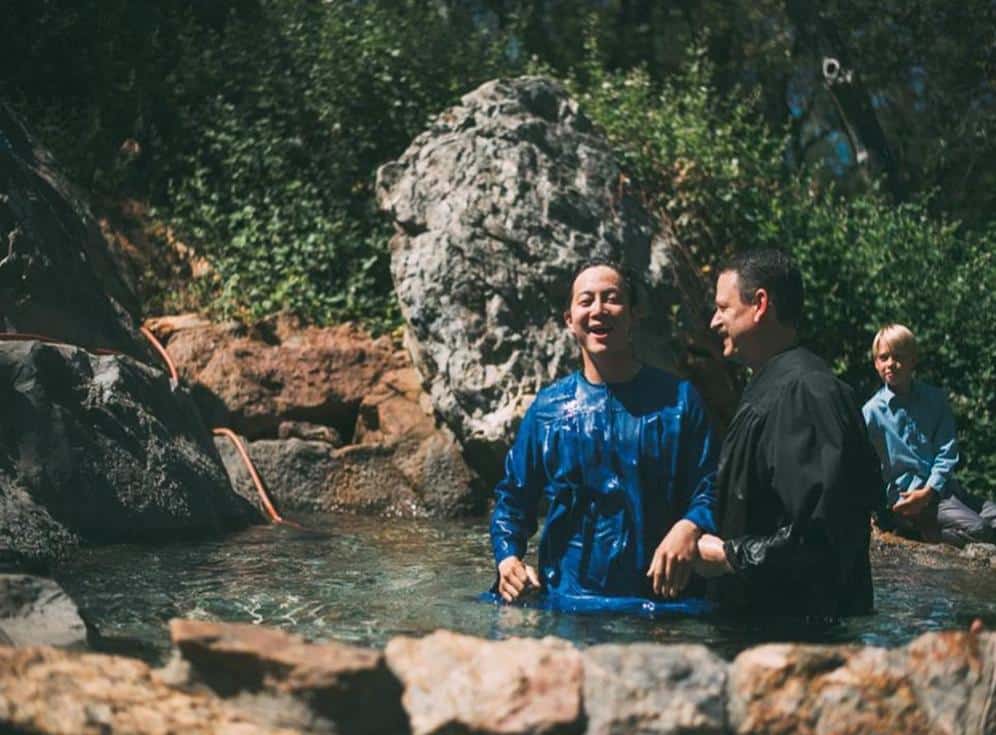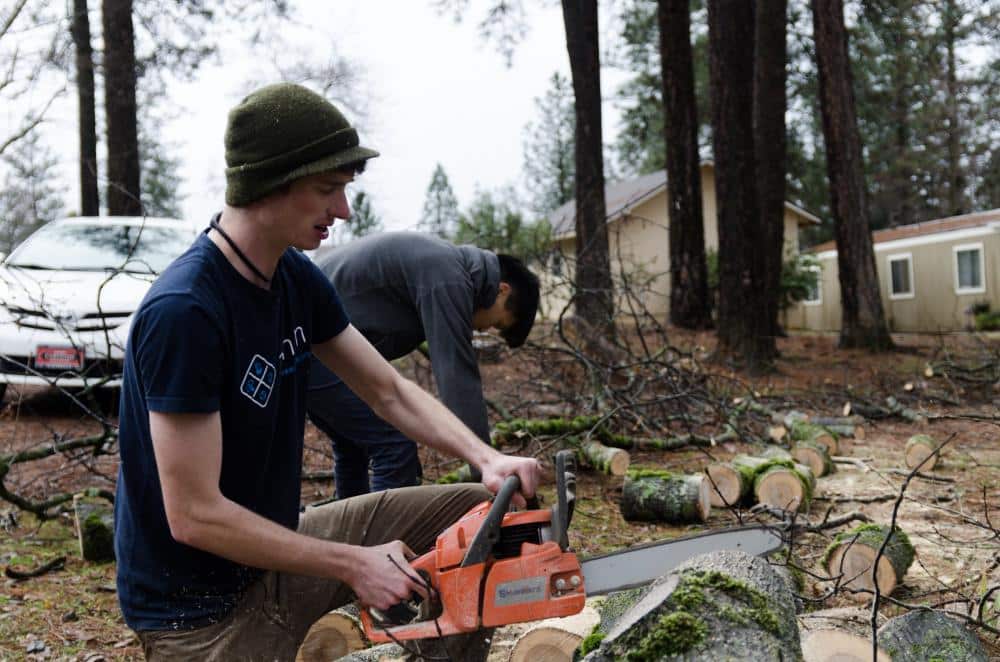By Heather Quintana
You would never guess it by looking at him, but Johnny An, a gentle-spirited nursing student at Weimar Institute, was kicked out of his last school. It wasn’t low grades or bad behavior that forced the only child from Incheon, Korea, out of school. It was just the opposite: his exceptional leadership skills and his commitment to biblical truth got him in trouble.
While attending Christian International School in Korea, An was president of the student body and the choir leader. He also began studying the Bible with a pastor at the local Seventh-day Adventist Church, where he learned exciting ideas that he couldn’t keep to himself.
“At school, I started preaching the Adventist message, prophecy, the health message, and the Sabbath,” said An. “I would share worship thoughts, and the students would go back to their homes and talk about the things they learned, which weren’t very close to what their families believed. So the school would get complaints from parents.”
And as the complaints came in, 15-year-old An was asked to leave. Eager to find a school where he could freely minister and serve others, An enrolled at Weimar Academy the state of California, United States, after a series of miracles opened the way. Weimar was such a good fit that An stayed by to attend college and to work as a medical assistant at the clinic on campus. His time at the clinic gave him valuable opportunities to make the kind of meaningful connections with community members that came natural to him.
“I would check the clients’ vitals and ask them their history. Then I would pray for them and sing for them every time,” said An. “They would question me why I did that, so I got to share some of my beliefs with them, and I would invite them to church.”
Once he became friends with the clients, he was eager to help meet whatever needs they might have.
“I wouldn’t do any Bible studies at first. I would cook with them, I would go the grocery store with them, or I would just listen,” said An. “A lot of times I’d just be there with them, like Christ mingled with people desiring their good. I’d just hang out and get to know them. Then they would question me, and I would share my testimony. A lot of times they were hurting and depressed, so I’d talk to them about the life of Jesus.”
As a result of An’s ministry, community members have been baptized and others regularly attend the Adventist church on campus.

A New Approach to an Old Idea
An isn’t alone in his commitment to service at Weimar Institute. Founded in 1978 as a lifestyle program, Weimar has long held a spirit of ministry at the center of their work. With a college, academy, and community clinic on site, Weimar has a global impact, and people come to the campus from around the world to learn how to reverse and prevent disease through natural methods. But, as An’s local ministry shows, you don’t have to cross the globe to find opportunities to minister.
“We’re reaching around the world, but what about across the street? Locally, what are we doing?” said Don Mackintosh, president of the NEWSTART Global wellness program and pastor at the Weimar Campus Church. To meet their own community’s needs, Weimar is launching Total Campus Involvement (TCI), a bold service-oriented initiative that will begin in August 2017.
“We want our students and staff to see a relationship with our community that lasts. We don’t want our physicians just to be like emergency room doctors,” said Mackintosh. “We want them to see people get better and get back into life, and we want to walk life’s journey with them.”
Total Campus Involvement was inspired by Total Member Involvement, a worldwide initiative of the Seventh-day Adventist Church that encourages every church—and every church member—to get involved in outreach. As a part of TCI, students and staff from Weimar’s college, academy, and clinic will commit half a day to service every week.
“We decided to put the service time right in the middle of the week—in the middle of what we do. So we’ll do it every Wednesday,” said Mackintosh.

The possibilities for service in the TCI Initiative are endless, according to Mackintosh. “Everybody can find something to do. You don’t have to be a nurse or a doctor. Just finding a need and meeting it is what we call involvement. So service could be splitting wood for a neighbor, doing yard work, or helping a widow,” he said.
Mackintosh said that then they are planning to link everything to this very simple message: “We’re Seventh-day Adventist Christians, and we just did this because we are here for you. We want to be like Jesus. He went about doing good.”
According to Ted N. C. Wilson, president of the world Seventh-day Adventist Church, Weimar’s TCI ministry opens the way for countless blessings.
“The implications of everyone on the Weimar campus involved in extensive mission activity is exciting and portends a tremendous blessing from heaven as evangelistic outreach takes place on campus, in the community, and around the world,” said Wilson. “By God’s grace, may Total Campus Involvement become a model for many other campuses around the world as young people, faculty, and staff submit to the power of the Holy Spirit in following Christ’s method alone in reaching people and announcing Christ’s soon return.”

The heart of Total Campus Involvement is to share the heart of Christ, said Mackintosh. TCI is this ministry of reconciliation in practical form. God helped us even though we were strangers and enemies,” he said. “Now we go out and help people we don’t know, even though they are strangers and maybe even enemies. We’re just here to tell them, ‘We’re all fellow members of the human race, and the reason we’re helping you is because Christ has helped us.’”
